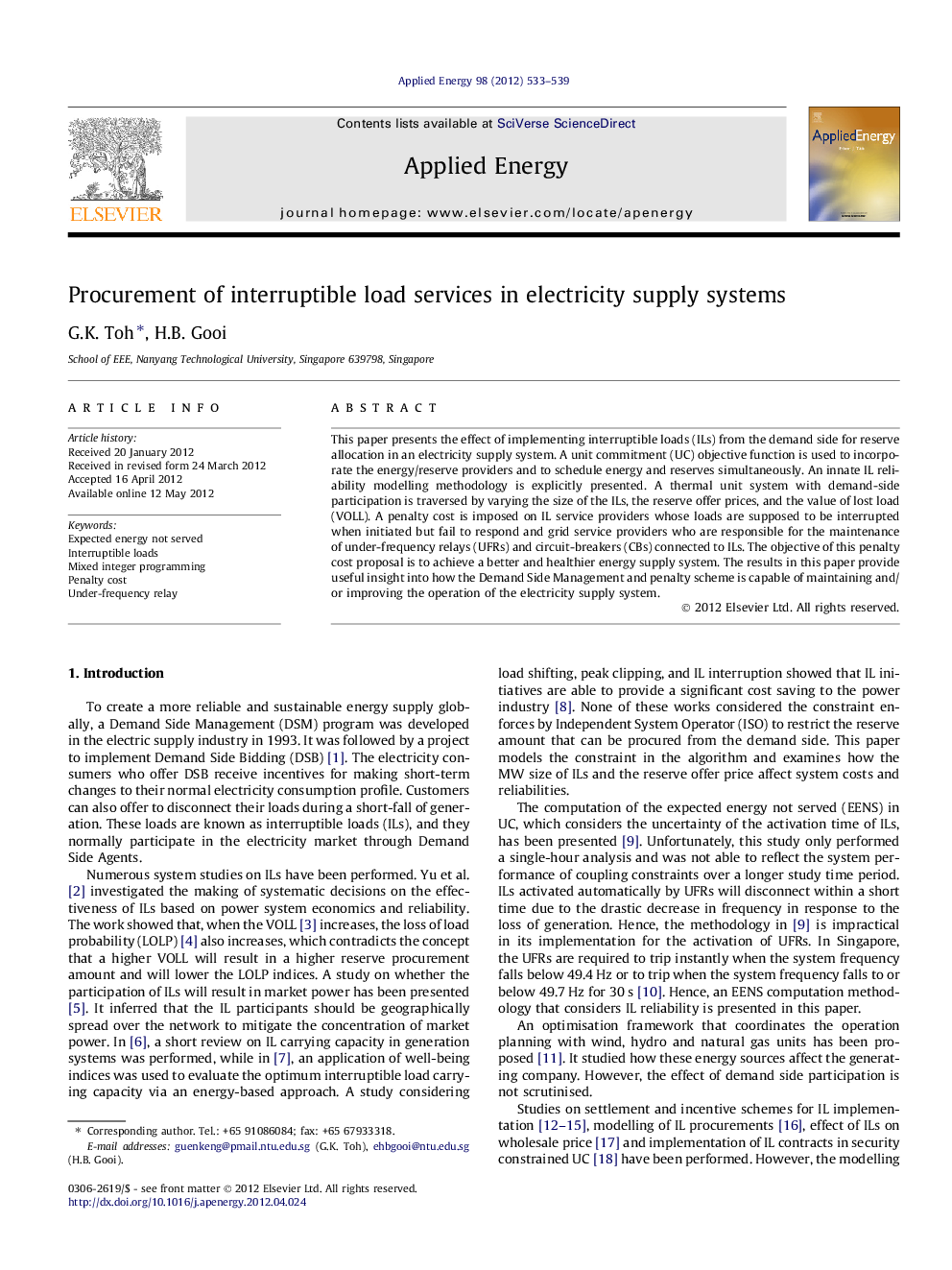| Article ID | Journal | Published Year | Pages | File Type |
|---|---|---|---|---|
| 243238 | Applied Energy | 2012 | 7 Pages |
This paper presents the effect of implementing interruptible loads (ILs) from the demand side for reserve allocation in an electricity supply system. A unit commitment (UC) objective function is used to incorporate the energy/reserve providers and to schedule energy and reserves simultaneously. An innate IL reliability modelling methodology is explicitly presented. A thermal unit system with demand-side participation is traversed by varying the size of the ILs, the reserve offer prices, and the value of lost load (VOLL). A penalty cost is imposed on IL service providers whose loads are supposed to be interrupted when initiated but fail to respond and grid service providers who are responsible for the maintenance of under-frequency relays (UFRs) and circuit-breakers (CBs) connected to ILs. The objective of this penalty cost proposal is to achieve a better and healthier energy supply system. The results in this paper provide useful insight into how the Demand Side Management and penalty scheme is capable of maintaining and/or improving the operation of the electricity supply system.
► Increase in the reserve from ILs, the EENS caused by online units will reduce. ► Increase in ILs reserve offer price will deteriorate the system reliability. ► With a high VOLL, greater reserves are needed and procured. ► Penalties imposed will improve the system reliability and reduce procurement cost.
